명품 언박싱: 그린워싱 에디션
“패션은 오로지 옷에 관한 것만은 아니다. 패션은 변화에 관한 모든 것이다.” 칼 라거펠트
명품 브랜드들이 앞다퉈 지속가능한 패션을 말하길래 역시 명품은 다르다고 생각했습니다. 그런데 우리 기대와는 달리 명품 브랜드들은 지속가능성을 검증하기 위한 중요한 정보는 숨긴 채 노력하고 있다는 말만 되풀이합니다. 기후에 진심인 우리 세대가 오픈런으로 성원해왔는데, 막상 명품을 언박싱해보니, 그린워싱이었다는 그런 이야기. 우리의 미래를 위해 명품이 환경적으로도 명품이 될 수는 없는 걸까요? 끓는 지구의 시대, 명품 브랜드에 책임감있는 기후 대응을 요구합니다!
명품 브랜드에 환경적 책임감을 요구합니다!
11,809
people have signed up
only 191 more until our goal of 12k
캠페인 관련 기사
럭셔리 브랜드에 대한 케이팝팬들의 목소리를 다룬 뉴스 기사를 확인하세요.

더나은미래
‘친환경 행동주의’ K팝 팬덤, 이번에는 명품 브랜드 정조준

한겨레21
블핑과 K팝 팬의 ‘명품 언박싱’…샤넬·디올·셀린느·생로랑 낙제점
명품 브랜드, 기후 점수는?
A+인척 해놓고 실상은 기후 점수 낙제점?
PS: 패션 리포트 순위를 기준으로 합니다.
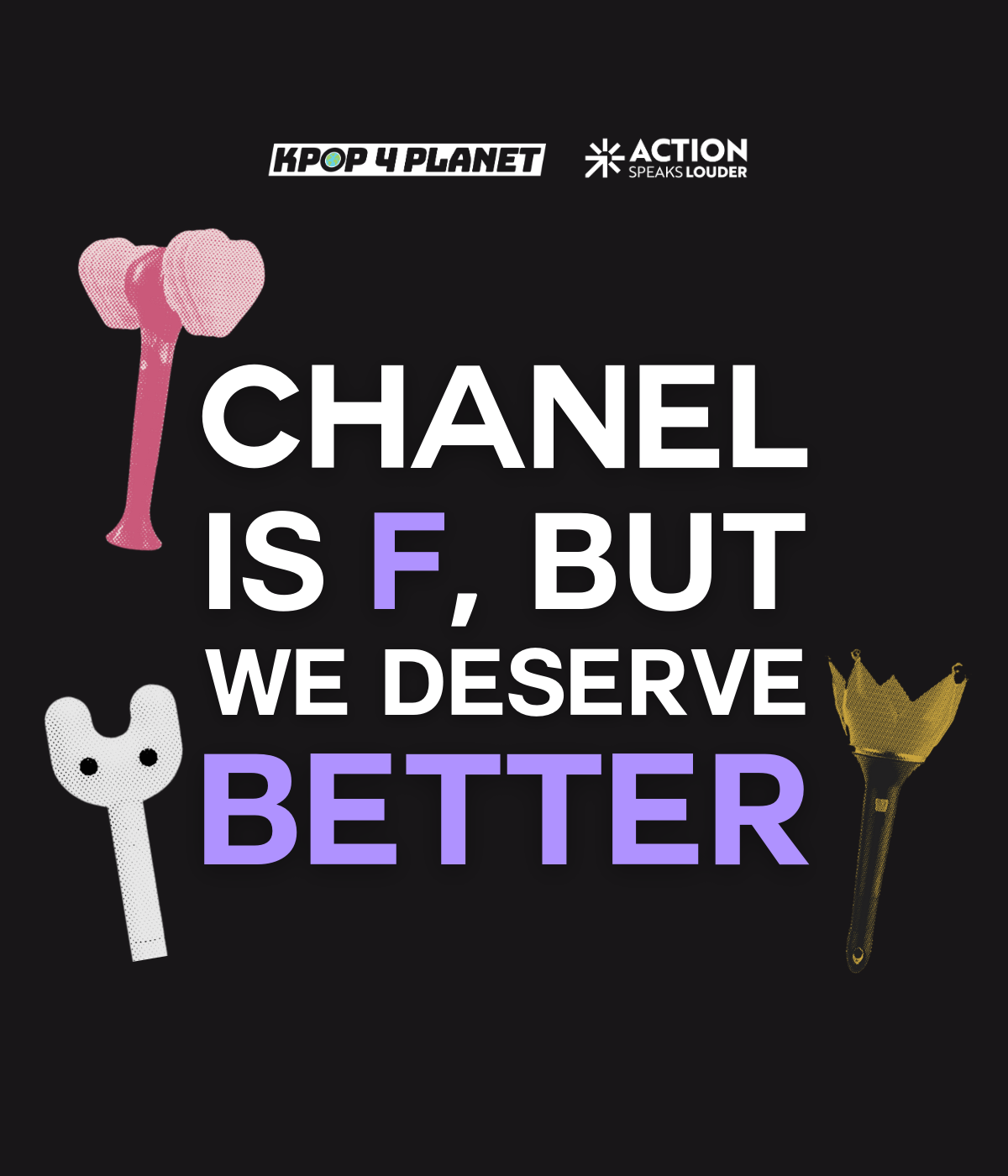
“환경에 진심인 척 했던 샤넬이 이 안에선 꼴찌라고?!”


부실한 목표
2030년까지 배출량 40% 줄인다고 하면 지속가능한 패션이라고 인정해줄 줄 알았죠? ‘판매 단위 당'이라는 점을 감안하면 절대량은 10%만 줄이는 거잖아요. 아 눼눼~ 재생에너지 쓰신다고요. 근데 그거 사무실이랑 매장처럼 샤넬 전체 탄소 배출량 3% 밖에 안되는 자체 운영 부분에만 해당하는 거 아닌가요? 샤넬의 클래식 플립백이나 트위드 자켓 만들 때 무슨 에너지 써요? 말해줘요, 현기증 난단 말이에요!
탄소 배출
2021년 샤넬의 온실가스 배출량은 약 89만 톤으로 전년 대비 67% 증가했습니다. 이는 버뮤다 국가 전체 탄소 배출량 또는 자동차 36억km 이상 주행 시 배출되는 양보다 많습니다.
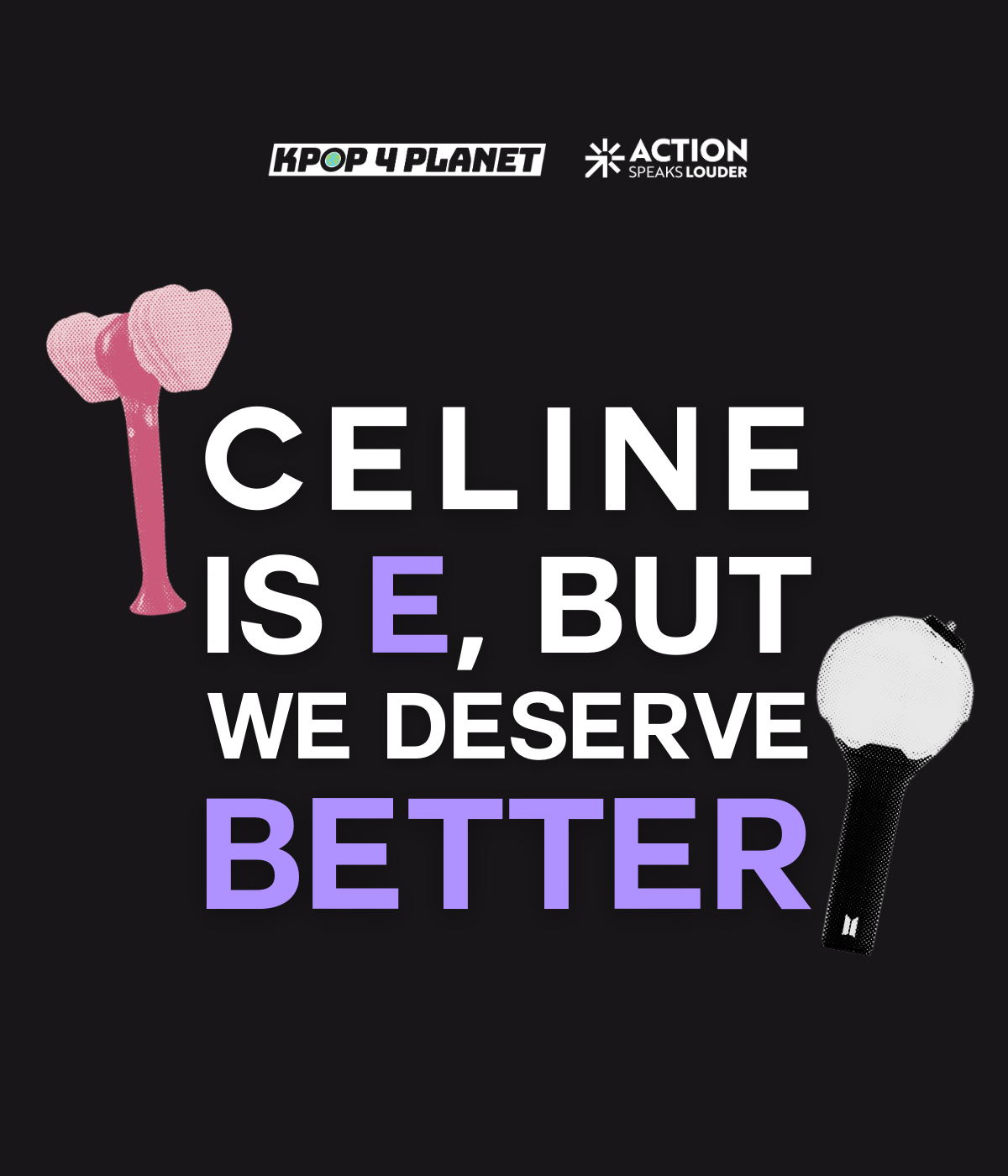
“셀린느가 속한 루이비통모에헤네시(LVMH) 그룹 간신히 F모면!”


부실한 목표
셀린느가 속한 LVMH 그룹은 지속가능성을 ‘전략적 우선순위'로 두고 널리널리 홍보하고 있어요. (예술적인 브랜드 홈페이지 참조!) 근데 여기도 재생에너지 100% 사용 약속은 셀린느 전체 탄소 배출량의 6%밖에 안되는 자체 운영 부분에만 해당하네요. 아니 그 전략의 진짜 목적은 ‘친환경 위장'인가요? 셀린느의 찰랑거리는 슬랙스를 무슨 에너지로 만들었는 지 알려고 하면 다쳐요…
탄소 배출
셀린느를 소유한 LVMH 그룹의 온실가스 배출량은 2021년 6백만 톤으로 전년대비 34% 증가했습니다. 이는 마다가스카르 국가 전체 탄소 배출량 또는 자동차 251억km 주행 시 배출되는 양보다 많습니다.
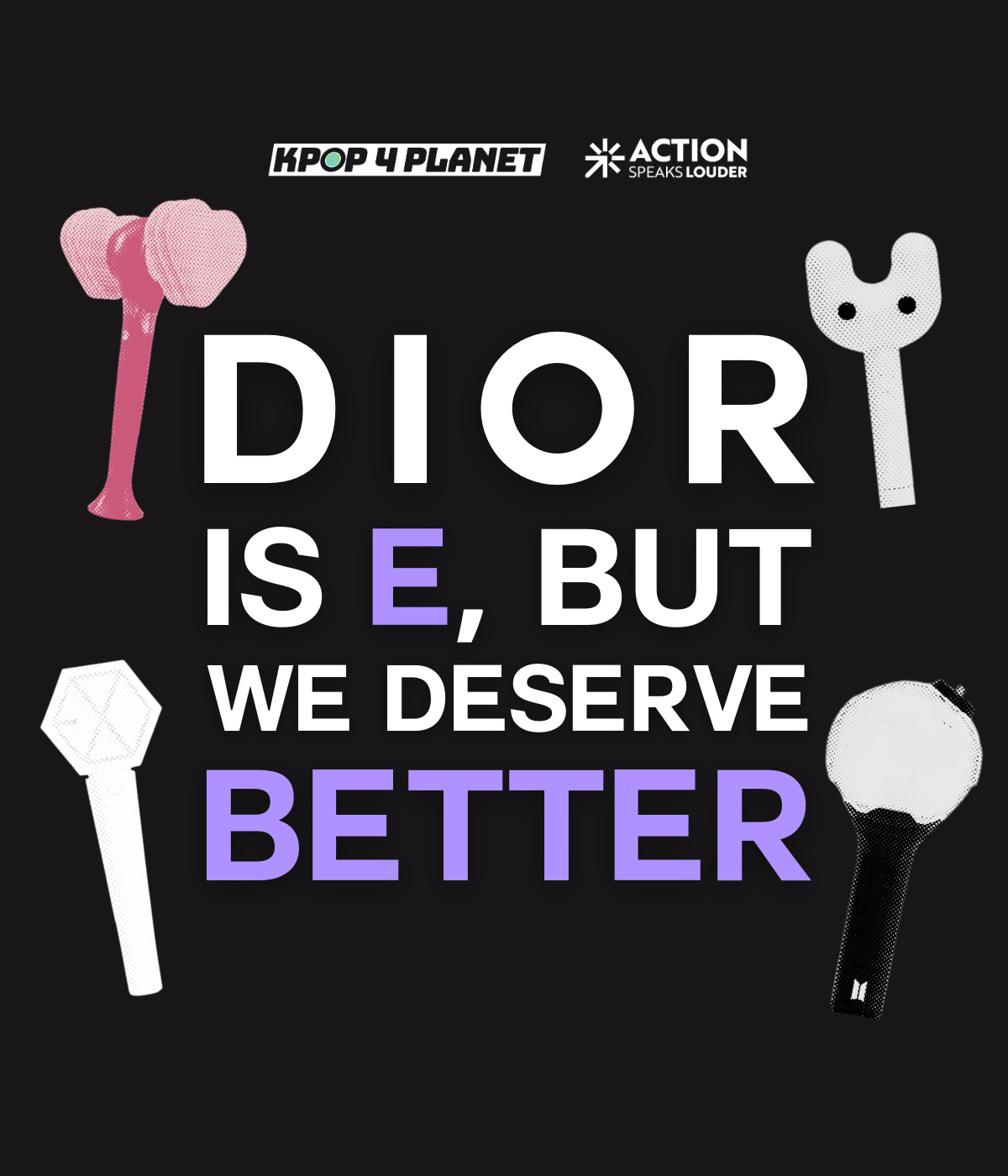
“디올도 속한 루이비통모에헤네시(LVMH) 그룹은 간신히 F모면!”


부실한 목표
디올도 LVMH 그룹 소속이에요. 쇼윈도 너머 우아함을 뽐내는 디올 제품 역시 석탄 등 화석연료가 없이는 구경하기 어려워요. LVMH는 기후위기에 대응하기 위해 탄소를 2030년까지 55% 줄이겠다고 했어요. 그런데 여기도 ‘부가가치 단위 당'이라는 조건이 붙었네요? @_@ 그래서 절대량으로는 30% 감축, 지구 온도 1.5도 상승 제한에는 턱없이 부족한 양이에요.
탄소 배출
디올을 소유한 LVMH 그룹의 온실가스 배출량은 2021년 6백만 톤으로 전년대비 34% 증가했습니다. 이는 마다가스카르 국가 전체 탄소 배출량 또는 자동차 251억km 주행 시 배출되는 양보다 많습니다.
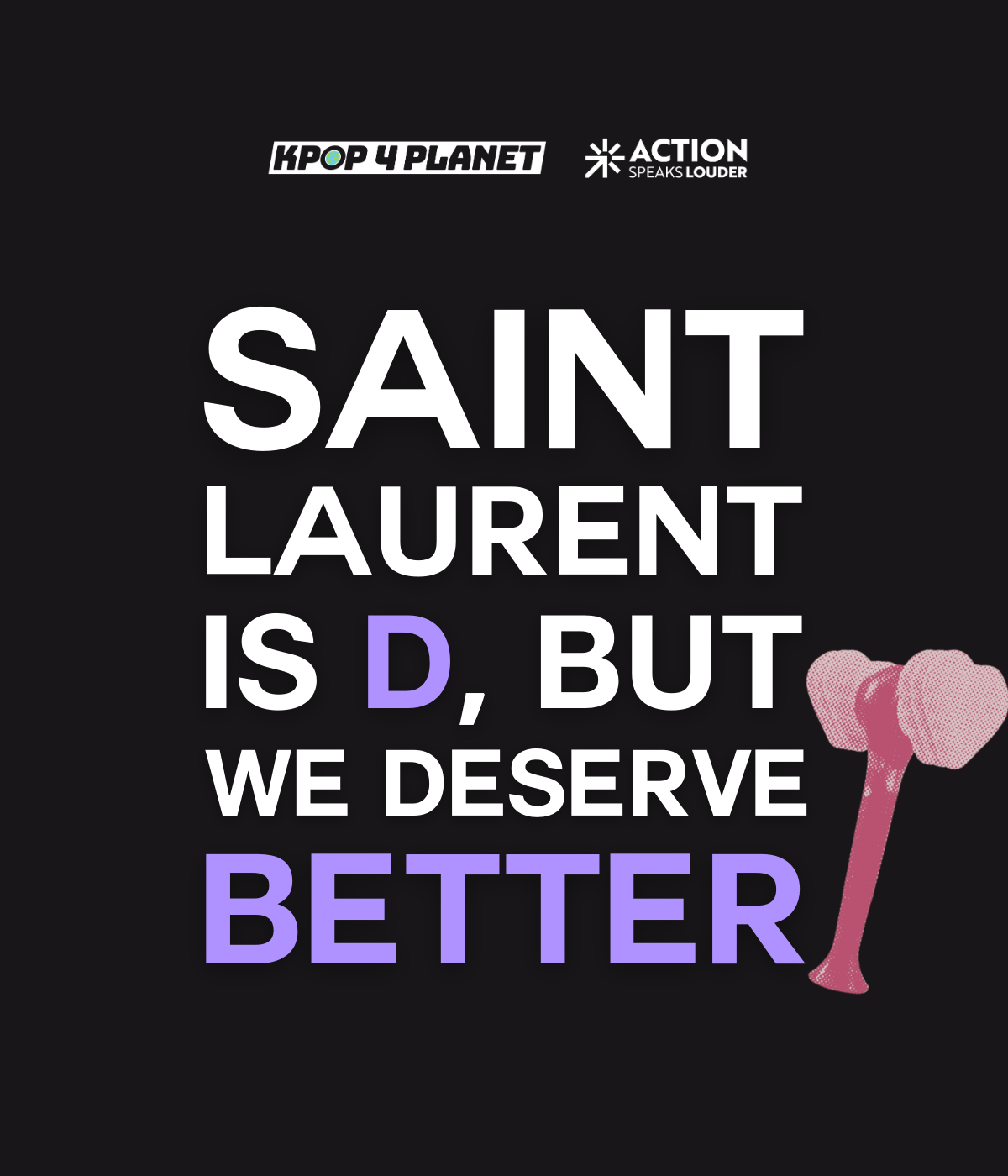
“그나마 목표가 큰 생 로랑 마저 탄소 배출 감소 대신 증가… 실화냐?”


부실한 목표
생 로랑의 모기업 케어링은 저희가 조사한 명품 브랜드 중 유일하게 2030년까지 제품 생산 및 판매 전 과정에서 100% 재생에너지 사용을 약속했습니다. 탄소 배출도 절대량 40%를 감축하겠다는 가장 나은 목표치를 제시했어요. 오~~ 근데 감동받기는 일러요. 그 시크한 파워숄더 자켓을 무슨 에너지로 만드는 지, 공급망에서 어떤 에너지를 쓰는 지 공개하지 않는 것은 다른 브랜드들과 다르지 않아요.
탄소 배출
생 로랑을 소유한 케어링의 온실가스 배출량은 2021년 2백38만 톤으로 2020년보다 12% 증가했습니다. 이는 몰디브 국가 전체 탄소 배출량 또는 자동차 98억km 주행 시 배출되는 양보다 많습니다.
*주의사항
모든 데이터는 개별 브랜드나 제품 범주가 아닌 모회사 수준에서 분석되었다는 점에 유의하시기 바랍니다. 생 로랑은 케어링, 디올과 셀린느는 LVMH가 소유했으며, 샤넬은 개인 소유입니다. 이는 회사 자체가 웹사이트, 회사 보고서 및 CDP 기후 변화 조사에서 배출량, 에너지 소비 및 기후 약속에 대한 상세한 정보만을 상위그룹 수준에서 제공하기 때문입니다. 이 성적표는 모회사 실적을 나타내는 지표일 뿐 특정 브랜드의 상세한 등급을 제공한다고 주장하지는 않는다는 점에 유의하시기 바랍니다.
왜 명품 브랜드가 환경적으로 문제라는 건가요?
우리는 깨끗한 옷을 입을 자격이 있으니까!
원재료 조달부터 옷이 생산되고 내 옷장에 걸리기까지. 모든 공정을 화석 연료에 크게 의존하는 패션은 탄소를 가장 많이 배출하는 산업 중 하나로 알려져 있습니다. 유명 브랜드들은 직접 제품을 만들기보다는 저소득 국가 소재 공장에 하청, 재하청을 주고 제품을 생산하는데, 이 공급망(특히 직물의 염색 및 표백)에서 대개 90%가 넘는 탄소가 발생합니다. 하지만 대부분의 명품 브랜드는 공급망에 관한 정보나 생산 과정에서 어떤 에너지를 사용하는지 등을 공개하지 않고 있습니다. 왜 이렇게 중요한 정보를 숨기는 걸까요?
명품 브랜드의 기후 대응, 사실상 “그린워싱"
명품 브랜드들은 100% 재생에너지를 쓰겠다고 호기롭게 말합니다. 하지만 사무실이나 매장처럼, 기업이 자체 운영 또는 통제하는 부분에 한정하기 때문에 제작⋅유통 과정 전반에서 사용되는 전체 에너지양의 극히 일부만을 차지합니다. 가령 생로랑의 모기업 케어링이 배출하는 전체 탄소량의 1%만이 자체 운영에서 발생합니다. 패션 산업이 가장 빨리 탄소 배출을 줄일 수 있는 방법은 석탄과 같은 더러운 화석연료 대신 태양과 바람에너지를 사용하는 것입니다.
공급망의 비밀

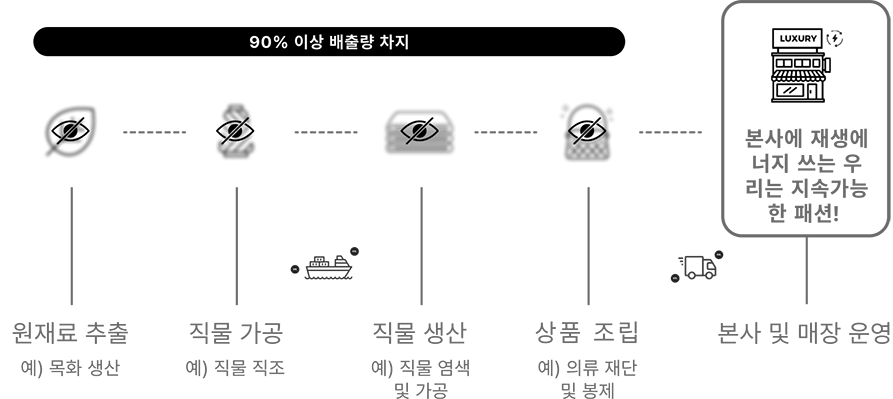
증가하는 탄소 배출량
명품 브랜드들은 대외적으로 ‘지속가능성’과 ‘기후 대응 목표’을 강조합니다. 그러나 실제 이들 기업이 매년 배출하는 탄소량은 오히려 늘고 있습니다. 샤넬이 대표적 예입니다. 밖으로는 탄소 중립을 외치면서 2021년 샤넬의 총 배출량은 전년 대비 무려 67%나 증가했습니다.
끓는 지구의 시대, 환경적으로도 명품이어야 진짜 명품
'비싼 데는 다 이유가 있다’. 소비자들이 명품을 사랑하는 이유는 그것이 가진 브랜드 가치와 사회적 책임의식을 믿기 때문입니다. 그렇다면 과연 명품 브랜드들이 기후위기에 대응하기 위해 책임감있게 행동하고 있는 걸까요? 안타깝게도 아직은 아닙니다. 하지만 우리가 함께 목소리를 낸다면 바꿀 수 있습니다.
명품 브랜드들이 공급망 포함 100% 재생에너지 사용을 약속하고, 제품 생산에 어떤 에너지를 사용하고 있는 지 공개하도록 요구해주세요. 내가 좋아하는 옷을 입으면서 지구에 미안하지 않을 수 있도록, 그리고 내 최애가 지구에서 가장 깨끗한 옷을 입을 수 있도록, 힘을 보태주세요!
저희와 함께 한 ‘명품 언박싱:그린워싱 에디션’에 공감하셨다면 아래의 청원하기 버튼 꾹!
더 자세한 내용은 아래의 명품 브랜드 그린워싱 보고서에서
확인할 수 있습니다.
변화를 위한 노력이 가장 필요한 브랜드는?
왜 케이팝 팬들이 나섰을까
명품 브랜드들은 케이팝 스타를 앰베서더로 기용해 구매력이 커지는 MZ세대 및 아시아 시장을 공략해왔습니다. 블랙핑크 지수가 지난 해 디올 쇼에 출연, 700만 달러에 달하는 브랜드 화제성 효과를 거둔 것이 대표적 예입니다. 시장 분석가들은 한국의 스타파워가 명품 브랜드의 수익 성장에 도움이 된다고 말합니다.
명품은 이렇게 영리한 방법으로 미래의 소비자 케이팝팬들의 시선을 사로 잡는데 성공했지만, 케이팝 팬들은 또한 무엇보다 기후에 진심인 세대입니다. 밀레니얼부터 Gen-Z, Gen-A까지 아우르는 케이팝 팬들은 앞으로도 오래 지구에 터전을 만들어갈 미래세대로 그들이 물려받을 지구를 위해선 명품도 환경적으로 명품이 되어야합니다.
그러므로 패션 업계가 젊은 세대에게 더 많은 상품을 판매하기 위해 아이돌을 홍보대사로 계속 사용하고 싶다면, 그들은 더 크고 과감한 기후 약속을 만들어야 합니다.






